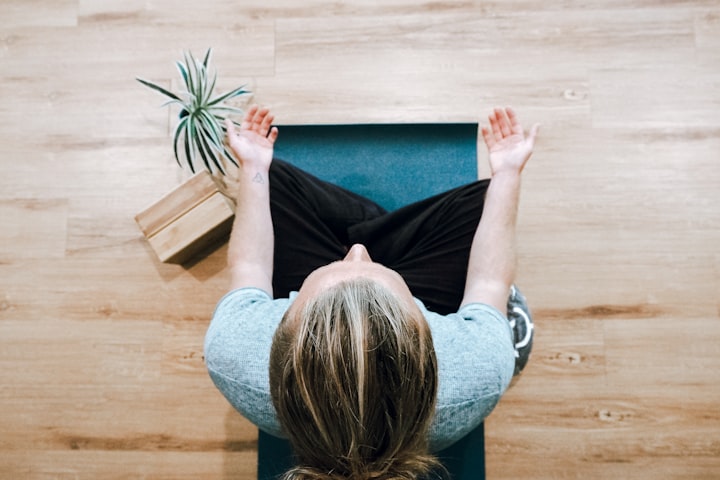The 5 Mental Health Clichés That Actually Work
You've heard them hundreds of times, and although you may be tired of them, these tips actually work.

"Why don't just be happy?", "You just have to go outside.", "You're just bored."
Those are the worst and most common "tips" we've heard when we're having mental health challenges. Although the people who say them have good intentions, we already know that none of this helps with mental illness.
Although we are in the middle of 2021 and we are all experts in psychology and therapy, there is still a lot of stigma and ignorance on the subject.
However, while there is much popular misinformation, there are many clichés tips that actually work.
These tips are old, really old. Almost these recommendations appear in a book published 400 years ago and have been sustained.
Of course, at that time, they didn't have the knowledge and technology to verify its effectiveness. Although they nailed it, as these were confirmed by science.
So these are 5 ancient mental health tips that actually work.
1. Keep an eye on the signs
Mental illnesses can have genetic causes just as they can happen because of our environment.
In either case, there are patterns of behavior that can be identified and an early diagnosis can be made. That is why you must be aware of these signs, changes in your behavior, and moods.
What is the most common mistake?
Feeling that something isn't "right" and ignoring that feeling, thinking that it will just go away on its own. Basically, what I did with the mysterious mole that appeared on my back.
Don't ignore the signs, as they can prevent bigger problems.
2. Find a balance
Spending too much time doing the same thing will always cause us problems.
Maintaining a healthy balance between the different aspects of our life is essential for strong mental health. We shouldn't be slaves to our jobs, or our duties as a parent, or waste our time doing nothing all day.
A healthy lifestyle is one where we distribute a sufficient amount of time on our responsibilities, our hobbies, and rest. Remember, it's not about keeping busy every second of the day.
3. Connect with your surroundings
This tip always makes me sound like a hippie, and while I don't make my own clothes or harvest the veggies I eat, it can confirm it.
I'm not talking about renting a camper van and living in the woods (although it sounds like a good plan to me), it's more about keeping in touch with the world around you.
It doesn't matter that you live in a busy city where concrete is everywhere a walk in the park will do the trick. Try to walk more, get closer to the sea or a lake, surround yourself with animals. Although it sounds like the advice of a Disney princess, the benefits of being in contact with nature have been known for years.
4. Talk about it
Our parents always tried. They would sit on the edge of our bed and invite us to talk to them about our problems. Although my mom never understood why I was crying so much when One Direction broke up.
It is important to connect with our loved ones as well. Maintain strong communication, be expressive with things that agitate us, and don't suppress our emotions.
Our friends and family are not therapists, but the exercise of vocalizing our problems is highly liberating. Talk about how you feel, and listen to those around you.
5. Eat healthily… or at least try
I'm no trainer or a nutritionist. I don't come here to talk about amino acids, proteins, carbohydrates, and all those terms that I had to google to write this paragraph.
But at least I can tell you to eat your greens.
There is a direct relationship between our eating habits and our mental health. High protein diets have been shown to prevent mental illnesses such as depression.
Although I am not qualified to prescribe a healthy diet, the least I can do is suggest that you eat balanced. We all know which foods are bad for us.
Eat pizza and ice cream as much as you want, but have a salad, too.
All these data appear in the book I mentioned: The Anatomy of Melancholy.
In the last decades, the veracity of their data has been studied and most have been accepted by professionals.
____________________________________________________
We made something a little great! The Anxiety Workbook, get yours by clicking here.
____________________________________________________
Want To Support Us?
You can like this story, tell a friend about it, buy us a coffee on Ko-fi, check us out on Medium, or all of the above! It all helps!
____________________________________________________
Want Even More?
Grab the latest updates from Mindsmatter. Exclusive stories, mental health resources, and more!
About the Creator
Mindsmatter.
Mindsmatter is written by Bola Kwame, Jack Graves and Emma Buryd.
De-stigmatizing mental illness one day at a time.
Our socials: https://linktr.ee/Mindsmatter






Comments
There are no comments for this story
Be the first to respond and start the conversation.